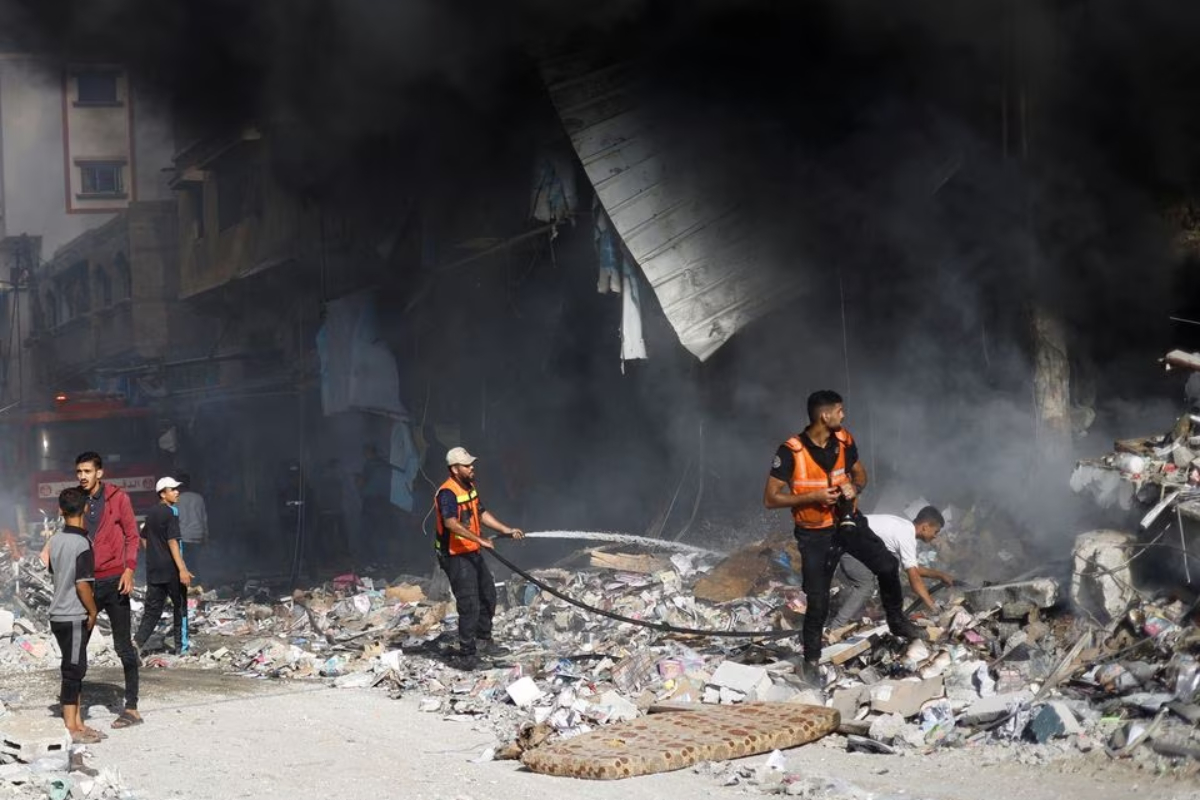US plans $320 million precision bombs transfer to Israel
WASHINGTON: Amid escalating Israeli air and ground attacks against besieged Gaza, the United States will transfer $320 million worth of precision bombs to Israel, as calls for a ceasefire grow.
The news comes shortly after the White House said US President Joe Biden and Israeli Prime Minister Benjamin Netanyahu “discussed the possibility of tactical pauses” to allow civilians to safely depart from under-attack areas, amid increasing calls for a ceasefire.
The report said US President Biden’s administration has informed Congress of the planned transfer of Spice Family Gliding Bomb Assemblies through a formal notification sent to congressional leaders on October 31.
In New York, UN Secretary-General Antonio Guterres led the calls for immediate calls as Palestinian authorities reported that more than 10,000 people have been killed in deadly Israeli air strikes on Gaza.
The secretary-general told reporters that Gaza was becoming a “graveyard for children”, with more than 4,100 killed since the fighting began.
The Wall Street Journal, which first reported the deployment of new military aid to to Israel, said that Rafael USA, a weapons manufacturer, will transfer bombs to its Israeli parent company for use by Israel, an aid package that includes support and testing, according to the newspaper.
The UN chief also underlined the need to support a $1.2 billion humanitarian appeal to help nearly three million people across the Occupied Palestinian Territory.
“The nightmare in Gaza is more than a humanitarian crisis. It is a crisis of humanity,” he said, speaking to reporters at UN Headquarters in New York.
He also voiced ongoing grave concern over rising violence and an expansion of the conflict between Israeli forces and Hamas, stating that “the occupied West Bank, including East Jerusalem, is at a boiling point.”
Guterres highlighted how “the unfolding catastrophe in Gaza makes the need for a humanitarian ceasefire more urgent with every passing hour,” stressing that the protection of civilians is paramount. “Gaza is becoming a graveyard for children.
Hundreds of girls and boys are reportedly being killed or injured every day,” he said. “More journalists have reportedly been killed over a four-week period than in any conflict in at least three decades.
More United Nations aid workers have been killed than in any comparable period in the history of our organization.”
The humanitarian appeal – launched by the UN and partners – will assist the entire population in the Gaza Strip and half a million Palestinians in the West Bank, including East Jerusalem.
Guterres said that although some aid is getting into Gaza via the Rafah crossing from Egypt, this “trickle of assistance does not meet the ocean of need.”
Over the past two weeks, 400 trucks have made the journey, compared with 500 a day prior to the conflict, and the aid deliveries have not included desperately needed fuel.
“Without fuel, newborn babies in incubators and patients on life support will die,” he warned. “Water cannot be pumped or purified. Raw sewage could soon start gushing onto the streets, further spreading disease. Trucks loaded with critical relief will be stranded.”
The Secretary-General said the way forward is clear, repeating his call for an immediate humanitarian ceasefire and for all parties to respect international humanitarian law.
He reiterated his appeals for the unconditional release of all Israeli hostages and for the protection of civilians, hospitals, UN facilities, shelters and schools.
Addressing the wider impacts of the conflict, Guterres pointed to the “spiral of escalation from Lebanon and Syria, to Iraq and Yemen”.
Calling for an end, he said “cool heads and diplomatic efforts must prevail.” Hateful rhetoric and provocative actions must also cease, he continued.
The Secretary-General also joined the UN family in mourning 89 staff from its agency that assists Palestine refugees, UNRWA, who have been killed in Gaza.


